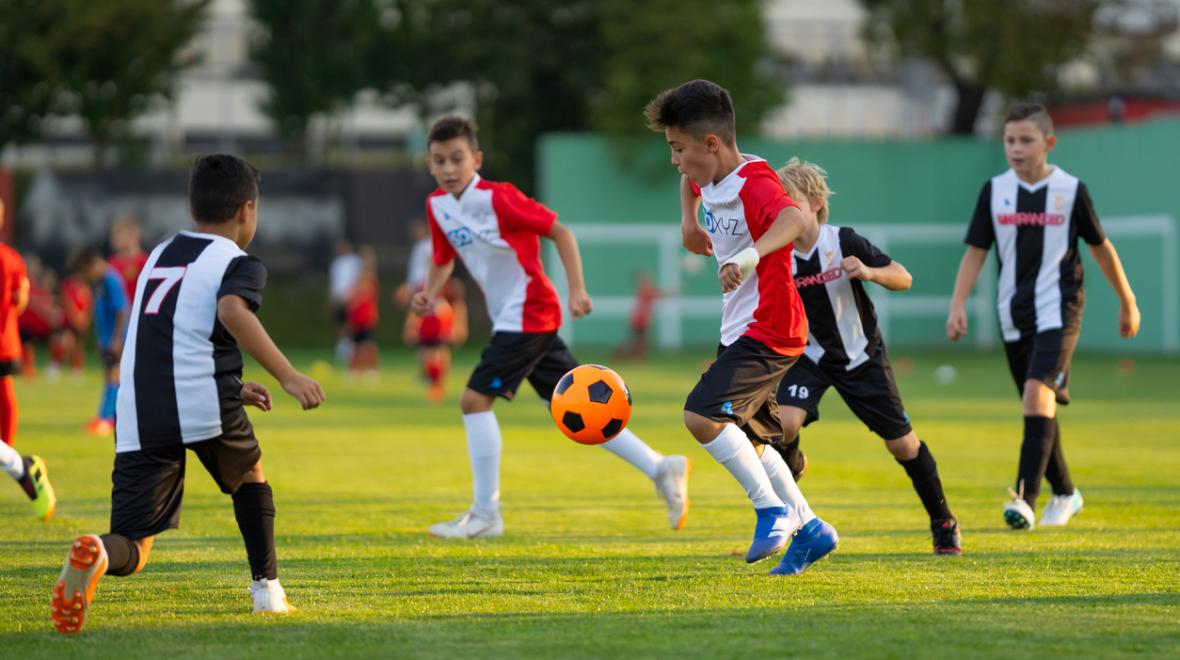
Recently, I was standing well back from the sideline at a soccer game my son was playing in. He was guest-playing for a different team in his club, so I did not know any of the other adults watching. I began chatting with a mom who, like me, was there with her dog. I learned her son was a player on the opposing team.
“I stand way back here,” she explained, “because there’s a mom from our team whom I find to be really embarrassing.” Indeed, it was not hard to tell who she was talking about. There was a woman on the sideline engaged in loud non-stop heckling. She shouted at the ref, a young woman who looked about 18, telling her she should learn to do her job. She shouted at the opposing team’s players.
After she saw what she thought was a hand ball, she heckled a player individually: “If you want to use your hands, 25, put on a keeper jersey.” Cringe. The players were 13 years old.
Being a good sports parent shouldn’t be that hard. But stand on the sidelines at any youth sporting event and you’re likely to find examples of how not to behave. (And to be clear, that team’s coach should have managed the behavior of the heckling parent.)
It’s easy to get caught up in the excitement and competition of youth sports, and every parent wants their child to play well and win. But they’re kids, they’re playing and learning, and adults should be modeling good sportsmanship. So, parents, let’s chill the cluck out and let them play. Like the sign at the field says: They are kids, the refs are human and no college scholarships are being given out today.
10 ways to be a good sports parent
- On the sideline, try to say only positive things. Really, just short compliments and encouragements. Here’s a list of ideas: Let’s go! Great play! Nice hustle! Right idea! Good shot! Great catch! Way to go! Awesome teamwork!
- Or, remain silent. This is a very good alternative to No. 1. It’s a fine line between offering encouragement and distracting kids with noise.
- Resist the urge to coach. Your kid’s team has someone in that role. Do not tell your player what to do, where to go on the field or court, or how to hit the ball. Don’t tell your kid’s teammates what to do either, including “encouragements” such as “Shoot!” or “Pass!” or “Who is guarding No. 7?”
- Avoid interfering with the natural unfolding of the game. For example, do not shout out when a player is offside or when you see that a foul has been committed. The refs understand the game, so let them do their job. This doesn’t mean refs won’t occasionally flub some calls. They’re human, as noted above. If there’s an actual issue, your coach will handle it.
- In fact, there’s no reason for parents or spectators to say anything at all to the ref or officials, except to thank them after the game.
- Try to learn the names of all the players on your child’s team. While you’re saying your positive things from the sideline, compliment the other players by name, not just your own kid. For example, after the game: “I saw that great shot, Joey!” Kids thrive when given words of encouragement from adults who are not their parents.
- While you’re at it, introduce yourself to your kid’s teammates’ families. Depending on the sport, you may be spending a lot of time with these people. Being friendly with the other families provides an example of team cohesion and makes the games more fun to attend as well.
- Help the coach. Vast numbers of youth sports coaches are volunteers — parents and community members who spend their afternoons and weekends in service of your kids and a sport they care about. Offer to send emails, bring snacks, pump up the balls, organize the pizza party, take the pinnies home and wash them — whatever is taking extra time for the coach. Even club teams who have paid coaches need the support of volunteer parents to cover certain jobs. Offer to help if you’re able to.
- This one is a bit more philosophical: Try to let your kid enjoy and find their own way in their sport, even if you also played the sport and know lots about it. Be mindful of projecting the aspirations of your youth or your athletic dreams onto your child. While sharing a love of a sport is an awesome way to bond, applying pressure or expectations, even unintentionally, can ruin a sport for your kid, or, worse, blemish your relationship with your child.
- After the game — this is important — resist whatever urge you might have to critique your child’s play or effort, the team, the opponent, the officiating or the result. Here’s a surefire formula for right after a game, win or loss: a hug and the words “I love watching you play.”
You might also like: |











